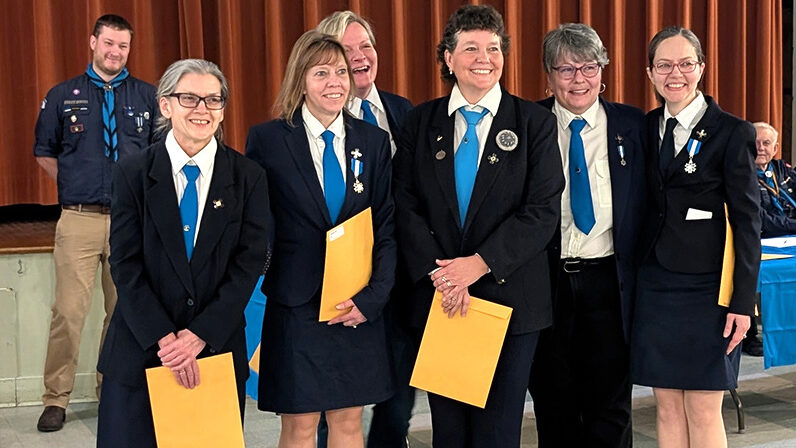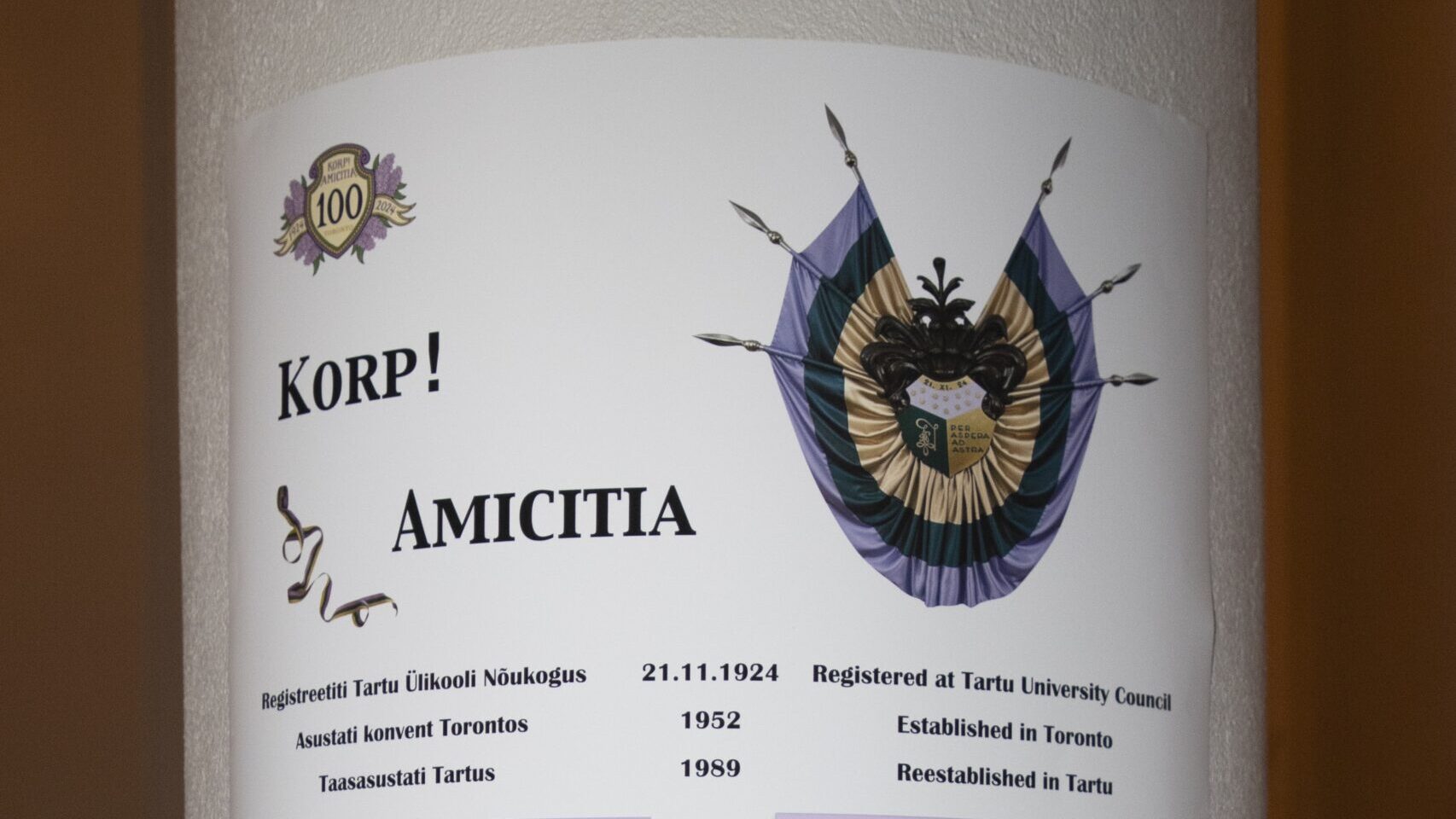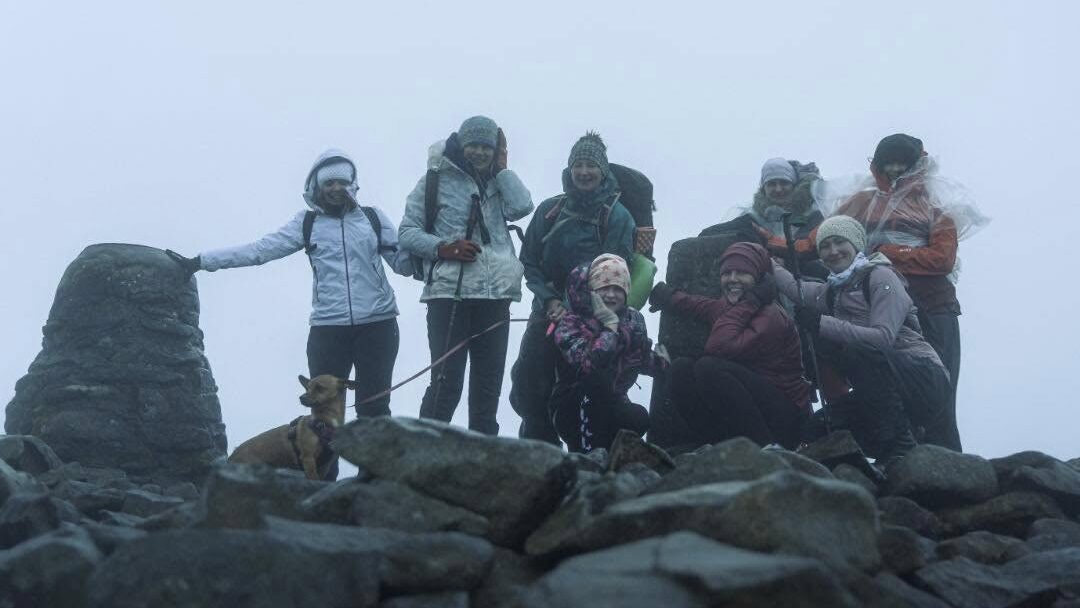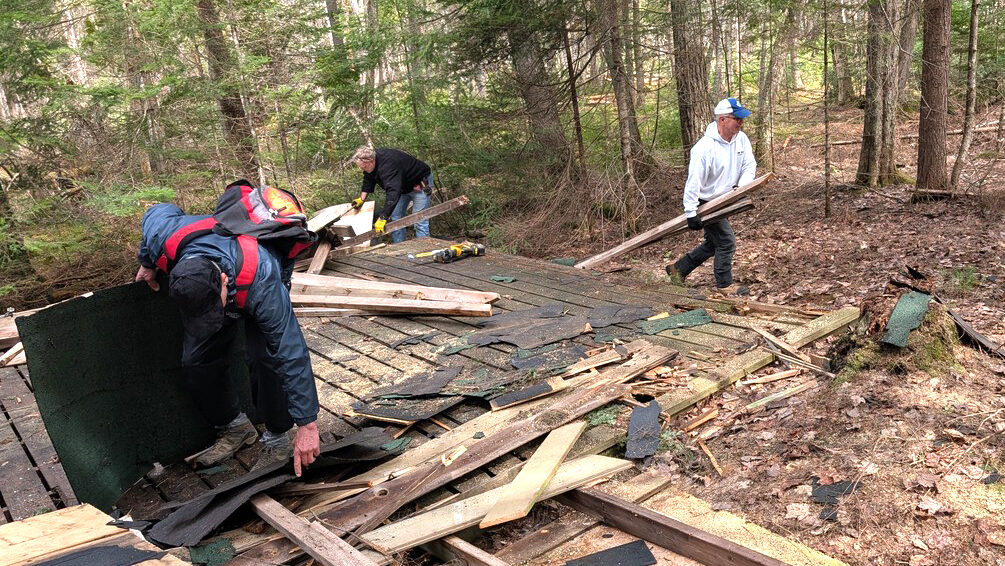We apologize for the lack of communication over the summer but with new teams and tools in place, we will rectify that situation and report to you regularly on progress and next steps. You can find more information, including a detailed list of questions and answers on the project, on our website at www.estoniancentre.ca and in communications posted in Eesti Elu/Estonian Life – both print and online versions.
One of the important tools to help the project move forward during this busy due diligence period is a strong leadership structure. We have done so by hiring Rob Deutschmann and David Kalm to manage the project, and Karin Ivand to lead project communications with a communications sub-committee of volunteer specialists. We have also mobilized other sub-committees including a building sub-committee and a legal sub-committee. More details are provided in the question and answer section of the website.
We'd like to provide a quick reminder of how we got here. Planning for a new Estonian home has been underway for some time. Extensive community negotiations were undertaken over many years and different locations considered. Several attempts were made to redevelop the Estonian House at its Broadview location and each time the developers walked away from the concept of a community centre.
As far back as 2011, again following extensive community consultations, the majority favoured moving to and consolidating resources closer to Tartu College. At that time, nothing was available in that area and neither 9 nor 11 Madison Ave. were for sale.
In 2014, 9 Madison Ave. was listed for sale by Build Toronto, the corporation tasked with selling City property – creating a very real opportunity for the Estonian community. Some community organizations began to discuss a possible purchase of the parking lot at 9 Madison Ave. Then 11 Madison Ave. – just north of 9 Madison Ave. – also became available for sale. Again, following discussions among various organizations, the Estonian Credit Union stepped forward and purchased 11 Madison Ave. in 2014 as a strategic investment to provide its members – and the Estonian community – with potential space for future use.
With Estonian community organizations owning property on either side of 9 Madison Ave., we had a stronger position with which to begin negotiations with Build Toronto.
Even though we were still facing confidentiality restrictions, as soon as the Letter of Intent was signed with Build Toronto to purchase the 9 Madison Ave. property (the current parking lot), an announcement was issued to the Estonian community. We needed to get the community involved and agree to explore this opportunity.
A town hall meeting for community members quickly followed in March. In April, the Estonian House board recommendation to its shareholders at its Annual General Meeting was to support the opportunity. A few of the shareholders said they were surprised and shocked that they had not been consulted. However, land purchase negotiations cannot be done in public and the confidentiality agreement remains in place. As well, the process of either redeveloping on Broadview or elsewhere had been underway for many years so this progression of events ought not to have been unexpected.
Following the town hall meeting, representatives from the four organizations met with as many shareholder and community groups as possible to answer questions prior to the Estonian House shareholder vote on the project. A number of questions were posed and answered, such as: will there be a grand hall at the new centre (yes); will there be a drop-off location off the street (yes); will there be washrooms on each floor and elevators? (yes.)
Alar Kongats, the project architect, prepared a design concept of what the new Estonian Centre could look like. The objective is to create a mutually sustainable institute for culture, learning, and social interaction for Estonians in Canada. The design combines Estonia's Nordic aesthetic with Toronto's cosmopolitan flair.
As with every development, the design will adapt to needs and city planning and regulations. Current major tenants of the Estonian House, such as the Estonian Credit Union, have specific requirements and the other organizations who rent space, such as the Estonian schools and kindergartens, folk dancers and others will need to provide more input about their needs and future space requirements as well before the design of the Estonian Centre is finalized.
The new Estonian Centre will be far more flexible in its use of space, and we need to agree on what we, as a community, view as our needs for the next several decades. Moving forward, this will be a community effort, led by professionals, following the due diligence period.
We have compiled a list of questions and answers on issues you have raised and hopefully we will continue to hear from you. We may not be able to answer you all individually or even right away, but rest assured they will be addressed. These are on our website and will be updated regularly as project steps unfold.
We are currently in the process of determining the ongoing viability of the project as promised.
This phase of work is called “due diligence.” Due diligence is work that focuses specifically on verifying the cost, funding and sustainability of the project. This is a critical step, as it will determine the feasibility of building and operating the new centre.
We continue to work with Build Toronto and with city planning, urban design and heritage, and physical testing of the new site from an environmental and geotechnical perspective.
The areas being studied under due diligence include project funding, project cost and long-term sustainability.
The project cost component of this work involves determining major expenditures such as construction, design and city approvals. The property 11 Madison Ave., currently owned by the Estonian Credit Union, will be sold to the Estonian Centre project.
Project funding involves identifying sources of funds available and assessing if they will be adequate to fulfill the requirements of running the centre in a fiscally responsible manner. One of the major sources of funds identified is the sale of the Estonian House at 958 Broadview Ave. and a market evaluation is underway. This sale is critical to the project. The three properties owned by the Estonian Foundation of Canada located next to the Estonian House will be included in the sale to enlarge the property's footprint and make it more attractive for a new owner or developer. EFC will receive back fair value for its properties.
Finally, we are working on the financial stability component of the project to ensure it is viable over the long term. This includes an in-depth look at the operating revenues and costs of the centre itself once it is fully complete.
All in all, the due diligence phase represents a tremendous amount of work and attention to every aspect of the centre's development and operation. We expect this phase to be completed by the end of the year, keeping in mind that some decisions such as municipal approvals (including review and approval by the Toronto Transit Commission), are subject to change.
The new Estonian Centre will consolidate the largest Estonian community in Canada. It will provide a mutually sustainable institute for culture, learning and social interaction for Estonian-Canadians.
Southern Ontario is home to one of the largest community of Estonians in the world outside of Estonia. We have contributed to Canada's cultural diversity and economic diversity for more than 60 years. Our forefathers and mothers worked hard to build a new life and familiar institutions when they arrived in this country, with little more than a suitcase of memories to help them get started.
The new Estonian Centre will be a legacy to them, to our children and to generations to come. It will also be a legacy for Toronto and for Canada – a thank you to this country for accepting Estonian refugees.
As we know, consolidation has inevitably already taken place with many organizations. Our Estonian community newspapers, Estonian schools, guides and scouts and other groups have all felt the effect of declining readership, participation and enrolment. The infrastructure that supports many of these groups needs to adapt as well.
The decision to sell the Estonian House was not taken lightly. It has been our Estonian home in Southern Ontario for many years and the site of many weddings, confirmation parties, receptions for the Estonian President and government officials. We hold it very dear.
But the Estonian House is no longer sustainable financially. It requires major capital repairs in order to be able to operate in a safe and financially feasible manner. It is not up to code and repairs are constantly needed. It is asset rich but cash poor. The use of the space by the Estonian community has also been steadily declining. Since 2010, rental income from Estonian organizations and renters has declined by 45 per cent. It does not mean, however, that we cannot take our memories and photos and heritage with us to the new Estonian Centre. Just as we made the Estonian House our home, so can we make the Estonian Centre our new home.
The new Estonian Centre will be a vibrant hub – as part of an “Eesti Keskus”, or “Estonian Village” next to neighbour Tartu College. Tartu College is already an established centre, and financially stable in its operations with income from its student residences. It is home to the future Estonian Museum Canada (also known as VEMU) with the first phase of that project already complete. While the two centres will remain separate, there will be opportunities for cost sharing, event synergies, collaboration and exploration of new ideas and cultural links that will be further developed.
This is a time to look ahead. We have a tremendous opportunity to create an exciting future for the Estonian community – a future that will ignite new ideas, new relationships and new possibilities.
For more information, including a detailed list of questions and answers on the project, please go to www.estoniancentre.ca
You are also welcome to email us at info@estoniancentre.ca
We are committed to communicating with you on a regular basis.
Thank you.
Ellen Valter, Chair of the Board – Estonian Credit Union
Eva Varangu, President – Estonian Foundation of Canada
Raivo Remmel, President – Estonian House
Jaan Meri, President – Tartu College



